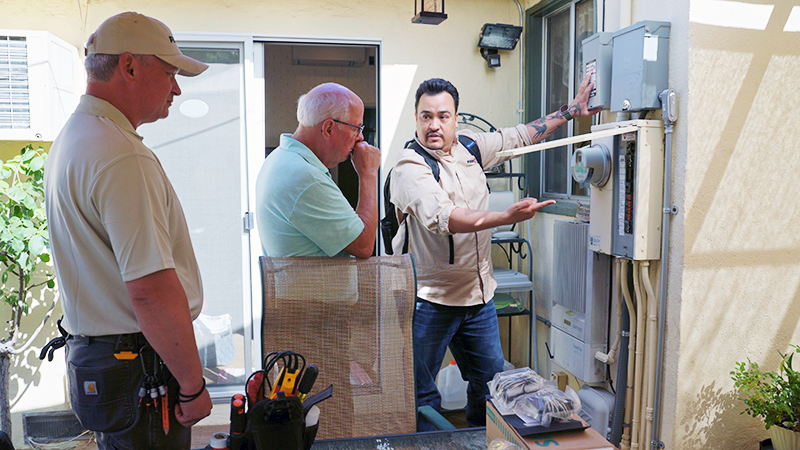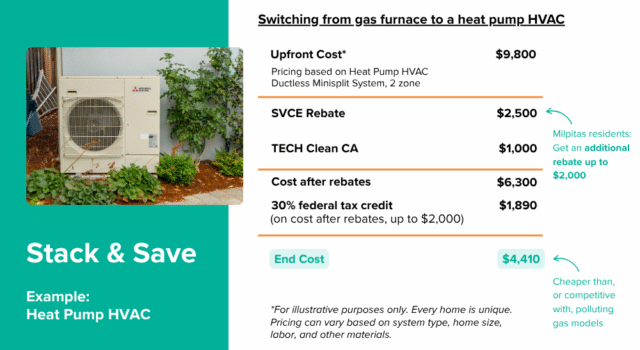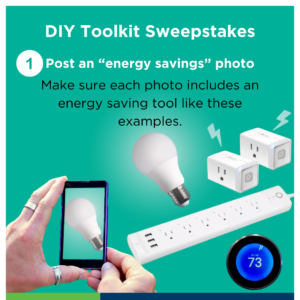As the movement towards electric appliances and all-electric homes builds, it can be difficult for community members to sort fact from fiction – Why is this happening? How much will it cost? Silicon Valley Clean Energy (SVCE) is a not-for-profit, community-owned electricity provider founded and governed by 13 local municipalities to address climate change. SVCE is here to provide technical expertise, resources and facts to our communities about electrification
The big picture:
- Nearly all homes can upgrade to modern electric appliances without changing their electric panel.
- Current rebate programs cover the incremental cost of electrification for low-income customers.
- Electric appliances are cheaper to operate than gas appliances.
SVCE supports customers to go electric with offers and services for heat pump equipment and has real customer data and studies from the thousands of customers who have made the transition. SVCE customer data and studies indicate that most homes can be electrified on 100 Amps and save on monthly energy bills with the increased efficiency of heat pump equipment.
This blog post provides FAQs about electrification, future Bay Area Air District regulations, and how SVCE customers can take advantage of available incentives and support.
What is electrification?
Electrification, or “going electric” refers to the transition from relying on fossil fuels as an energy source to using clean electricity to power cars and home appliances. Burning gas in cars comprises about half of local pollution, but the other half comes from burning gas in homes and buildings, among other uses.
Moving away from combusting fossil fuels in homes and businesses helps reduce local pollution, while improving health and safety. Learn more about efforts to decarbonize the grid to support electrification.
What are the key technologies for home electrification?
There are two main appliances that emit the most pollution from homes – gas furnaces and gas water heaters. Gas water heaters are always on, emitting harmful, smog forming nitrogen oxides (NOx) pollution. The most efficient alternative, which have been gaining widespread adoption across the country, is to upgrade to heat pump technology.
Heat pumps move heat vs. combusting fuel to generate heat. This makes heat pumps 3 – 4x more efficient than gas, with zero emissions. They are also smart technologies that can be programmed to operate at the lowest cost, off-peak times. The efficiency gains plus smart operation means most homes benefit from ongoing bill savings when transitioning to heat pumps.
Visit our Heat Pump Water Heaters 101 or Heat Pump HVAC 101 to learn more.
What is the cost difference between a traditional gas water heater and a heat pump water heater?
On average, a heat pump water heater costs $3,000 to $4,000 more to install than a gas tank water heater before rebates and $0 to $2,000 more after SVCE rebates, depending on income eligibility. Every project is unique, and costs vary accordingly.
Does installing a heat pump water heater require upgrading my electrical panel?
No, the vast majority of homes can fully electrify on a 100-amp panel, including older homes and those that don’t currently have air conditioning.
Peninsula Clean Energy, another community electricity provider similar to SVCE, studied over 100,000 single-family homes and found that 99% never use more than 100 amps throughout the year. Over 80% never use more than 40 amps.
SVCE studied over 115,000 single-family homes and found that 90% could add two new heat pumps to 100-amp panels without requiring a panel or service upgrade, even in older homes that didn’t previously have air conditioning. View the best practices for avoiding panel upgrades fact sheet.
Will adding more electric equipment to my home increase my energy bill?
Modern heat pump heating and cooling (HVAC) systems are more efficient than traditional air conditioning units with gas furnaces and are less expensive to operate, resulting in average monthly bill savings of $25-$50, according to recent studies. Similarly, research has shown that heat pump water heaters can save the typical home $20-$35 per month compared to traditional gas water heaters, when the equipment operation is paired with an electrification-friendly rate, such as the Electric Home (E-ELEC) rate, which is available to all community choice energy and PG&E customers.
I heard there is a ban on gas appliances coming. What exactly are the regulations, and who is enforcing them?
In 2023, after following a public process, the Bay Area Air District passed building appliance rules that will require future space and water heaters to be free of NOx emissions. The best zero NOx options currently available are efficient, electric heat pump water heaters and heat pump HVAC systems.
The rules apply only to new equipment and do not mandate retrofitting existing equipment. The rules will prohibit both the sale and installation of polluting appliances, following the effective dates:
- 2027 – only zero NOx water heaters can be sold or installed in the Bay Area.
- 2029 – only zero NOx furnaces can be sold or installed in the Bay Area.
- 2031 – only zero NOx large commercial water heaters can be sold or installed in the Bay Area.
To learn more, view the Air District Myths vs. Facts.
Why is the Air District doing this?
Burning gas in buildings is responsible for more smog than all the cars in the Bay Area combined. NOx emissions themselves are hazardous and contribute to the formation of ozone and fine particulate matter pollution. Air District data has shown that over 30% of the stationary sources of NOx emissions in the Bay Area come from gas-powered space and water heating equipment. Eliminating these emissions will be key to improving air quality and achieving compliance with the Federal Clean Air Act.
According to the Air District, the health benefits of reducing pollution from burning gas, which releases NOx, include preventing deaths, cases of asthma and other respiratory conditions, neurological diseases, heart attacks, strokes, and others. This could result in avoiding up to $890 million per year in health impacts. Learn more about NOx health impacts.
What are the exceptions for those who cannot comply with these rules?
Air District staff is developing a proposal for exemptions to these requirements when it is technically or financially infeasible. More information is available here.
What types of support and rebates does SVCE offer to customers who wish to upgrade to heat pump equipment?
Customers interested in learning more about heat pumps can view the SVCE guides to heat pump water heaters and heat pump HVAC.
From do-it-yourself to done-for-you, SVCE offers rebates and services to upgrade your home with high-efficiency electric appliances. Customers can receive up to $3,000 in SVCE rebates for a heat pump water heater, which are fully stackable with other available federal, state, and local incentives. Income-qualified customers receive additional rebate funds, with free install services available. Check qualifications.
Options for Upgrading to a Heat Pump Water Heater:
Option 1: DIY or Contractor Installation. If you already have a contractor or prefer to install a heat pump water heater yourself, reserve your rebate and claim your reimbursement through the SVCE Home Rebates program.
Option 2: Need Help Finding a Contractor or Quotes? If you need assistance in finding a contractor and stacking rebates, use the free SVCE Assisted Home Upgrades tool. This free service allows you to request project quotes from multiple contractors and apply for all eligible rebates with a single application—all in one convenient place.
Option 3: Emergency Replacement. Broken water heater and need an emergency replacement? Services such as the SVCE Emergency Water Heater Replacement Program offer support for those in urgent need of a new water heating solution. Instead of a standard replacement, SVCE will help you upgrade to an energy-efficient heat pump water heater.
Get expert help from our dedicated Energy Advisors!
Discover the benefits of going electric, explore available incentives, and get personalized advice for your home or your future EV. Our team is here to help, free of charge, Monday-Friday, 9 a.m. – 5 p.m. PT (excluding holidays). Chat Now or call (833) 243-4235.





